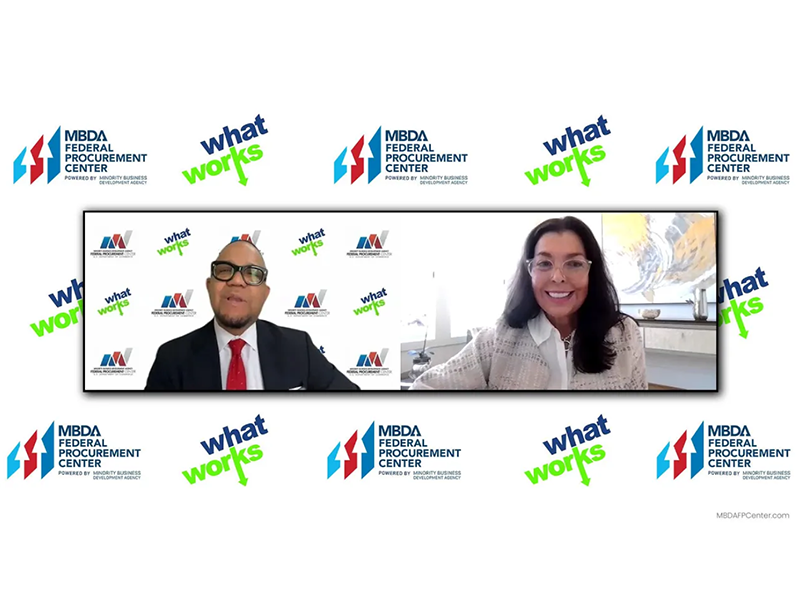A Federal Contractor Without a Vision Will Struggle: Find Your Stride in the Trump Administration and Become a Philanthropist!
Introduction
The landscape of Government contracting is shifting, creating a new era of opportunity for businesses of all sizes and backgrounds. The key to Federal contracting success in this ever-evolving environment is understanding the core requirements that ensure access and participation. Small, minority-owned, and service-disabled veteran-owned Federal contractors are firmly the foundation of America’s economic strength. Finding new pathways to Federal procurement requires every CEO in America to have a vision for what works—or risk coming up short, being forced to scale downward, and potentially facing business failure.
Our recommendation to CEOs and Board of Directors of Federal contracting firms is to navigate their contracting business with a focus on understanding specific policies, formulating newly adopted practices, and preparing to deploy strategies to maximize success in 2025 and beyond.
This article explores the critical elements that define “what works” in this new contracting arena while examining the importance of procurement policies, strategic compliance, and the role of philanthropy—yes, philanthropy.
Strategy for Small Business in the New Era of Government Contracting
Historically, Government contracting awards have been largely dominated by well-established, larger corporations, even when agencies meet their statutory 23% small business goals. Over 70% of contracts are awarded to larger firms. However, a growing emphasis on expanding a small business supplier base in procurement policies has shifted the landscape. According to USAFacts.org, small businesses make up 99.9% of all businesses in the U.S. and employ 45.9% of all private-sector employees. Small businesses are the lifeblood of the U.S. economy. They create two-thirds of net new jobs and drive U.S. innovation and competitiveness.
Starting with the End in Mind as a Strategy to Advance Opportunity for All
Philanthropy: A Strategy to Democratize Prosperity and Inspire Small Business
Imagine if Government contracting officers, program managers, and contracting officers embraced a culture that seeks to advance wealth creation by inspiring philanthropy to solve community problems. The creation of wealth that drives philanthropy can be observed in the formation of foundations, often started by successful entrepreneurs who amassed immense wealth. These business leaders, who have generated enough prosperity to sustain generational wealth, establish foundations with boards of directors responsible for funding initiatives that address societal challenges.
Thanks to a Saturday morning of channel surfing, I stumbled upon an article about How Philanthropy Changed America by Robert Reich. His insights highlight how philanthropy can be a driving force in economic and social transformation.
I invite you to join me in making America greater by growing small businesses into a nation of philanthropists.
Strategic Partnerships: Strength in Collaboration
To my fellow CEOs—here’s where we start your vision for your business in 2025. Focus on building relationships with prime contractors, agencies, and other small businesses that can significantly increase your contracting opportunities. Key strategies include:
· Joint Ventures and Teaming Agreements: Partnering with other businesses to strengthen capabilities and meet contract requirements.
· Subcontracting with Primes: Many large contractors are required to subcontract a percentage of their work to small and disadvantaged businesses.
· Industry Networking: Attending procurement events, engaging with agency representatives, and joining business associations can help businesses stay informed and connected.
Technology and Digital Readiness
As Government procurement becomes increasingly digitized, businesses must ensure they are technologically equipped to meet contracting requirements. This includes:
· Cybersecurity Compliance: Federal contracts often require adherence to cybersecurity standards, such as NIST 800-171 for defense-related contracts.
· Cloud-Based Procurement Tools: Many agencies use electronic procurement platforms like SAM.gov and eBuy to manage contracting processes.
· Data Analytics for Competitive Bidding: Leveraging data to analyze past contract awards, pricing structures, and competitor strategies can enhance bid success rates.
Financial Preparedness: Access to Capital
At some point in their business journey, most small businesses struggle with the financial demands of Government contracting, particularly in handling upfront costs before receiving payment. There is also the challenge of waiting through long contract award cycles—often ranging from 3 to 9 months—before revenue begins to flow. During this period, many small businesses must financially sustain themselves despite little to no incoming revenue.
Best practices for financial preparedness include:
· Government-Backed Loans and Grants: Programs such as the SBA 7(a) Loan Program and the Small Business Innovation Research (SBIR) grants provide funding assistance.
· Line of Credit Arrangements: Establishing credit with financial institutions to manage cash flow during contract execution.
· Invoice Factoring: Some businesses use invoice factoring to access immediate capital by selling receivables to third parties.
To learn more about how your business can navigate the Federal contracting space, access new opportunities, and manifest your vision for 2025, email me at [email protected] or visit www.mbdafpcenter.com today.
I’d like to thank Robert Reich, whose work has captured my attention, and with that—who knows what happens when like-minded visionaries connect?
Keith D. Moore








